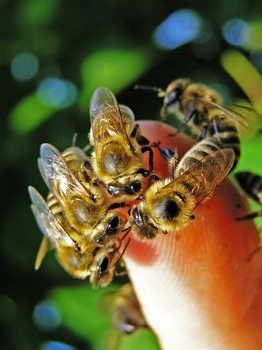Beesting vaccine coming
 Australian researchers have developed a world-first vaccine for beestings.
Australian researchers have developed a world-first vaccine for beestings.
Flinders University researchers have successfully completed a 10-year human trial of the vaccine designed to eliminate the risk of allergic reaction to the common honeybee.
It works by blocking antibodies and stopping bee venom from reaching the immune cells.
The new jabs also contain a unique sugar-based ingredient, developed in Adelaide, which significantly improves the speed at which the vaccine works.
“If we can improve the treatment for bee sting allergy, that's going to have a major global impact,” Professor Nikolai Petrovsky from Flinders University said.
The current treatment options for serious bee venom allergies are lengthy and cumbersome, requiring patients to have over 50 injections over a 3 year period to build up their immune system.
It is hoped that the enhanced bee venom therapy will result in faster and longer-lasting protection.
“Currently people with severe allergy have to have a vaccine every month, potentially for the rest of their life,” Professor Petrovsky said.
About one in 30 people are allergic to bee venom, and the only way to find out is by getting stung.
“Bee venom allergy is much more common that we might imagine,” Professor Petrovsky said.







 Print
Print